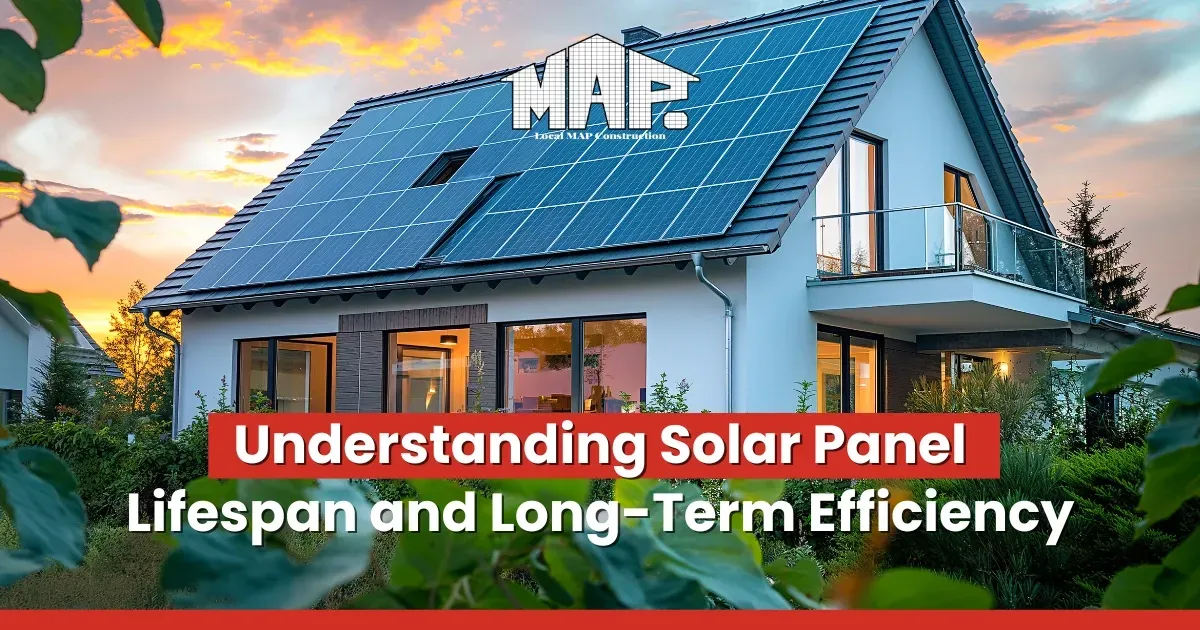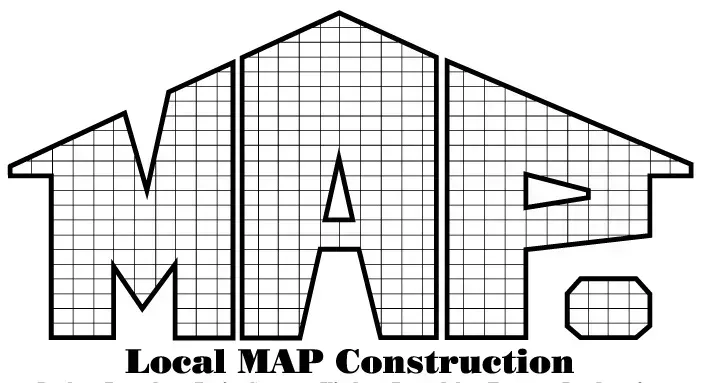Understanding Solar Panel Lifespan and Long-Term Efficiency
Understanding solar panel lifespan is important for anyone thinking about renewable energy. Homeowners and businesses alike want to know how long their solar panels will perform and what affects their durability. Panels are built with advanced solar panel technology that can deliver decades of reliable energy production. Still, factors such as weather conditions, installation quality, and ongoing solar panel maintenance play a big role. Knowing what impacts performance helps you get the most value from your solar investment. This guide breaks down everything from installation to end-of-life solar panels to help you make informed decisions.
What Factors Affect Solar Panel Lifespan?
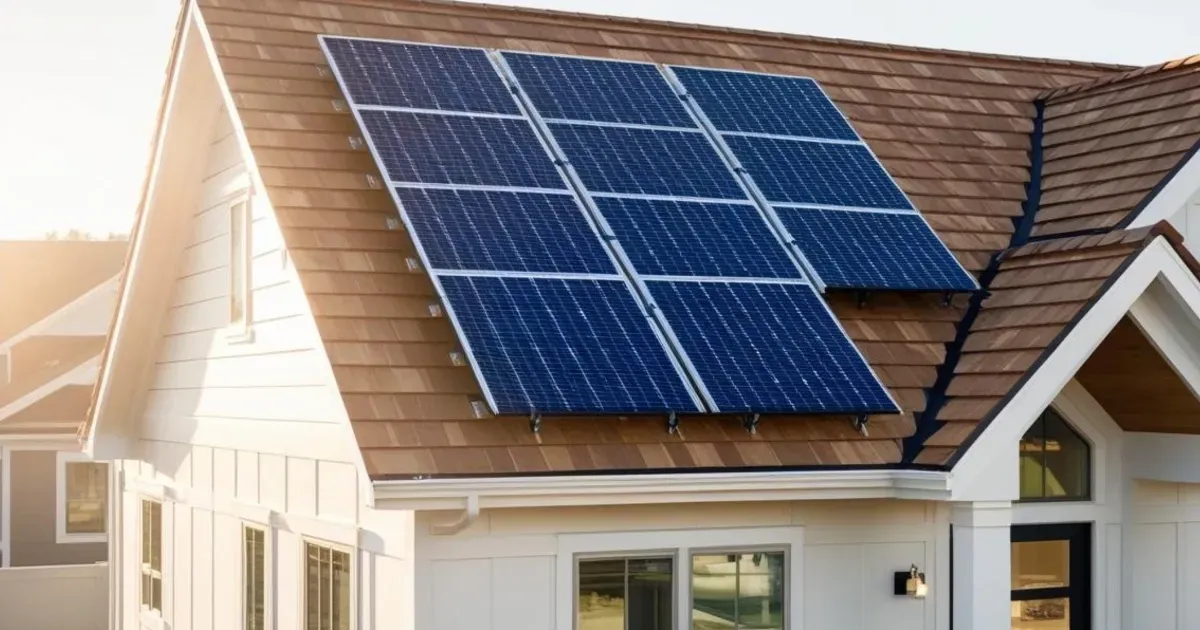
Several factors determine how long a solar panel system continues to perform optimally. From natural wear to environmental stressors, each factor influences the life expectancy of your solar cells. Understanding these factors helps protect your solar energy system and reduce costly solar panel repairs or early replacement.
Degradation Rates
Every solar panel system experiences gradual solar panel degradation over time. This decline is measured by a degradation rate, which indicates the annual loss of power output. Common issues include potential induced degradation and light-induced degradation, which can lower solar panel efficiency. Choosing PV modules with lower degradation rates and reliable module type specifications is one way to extend panel life.
Weather Conditions
High winds, heavy snow loads, UV rays, and temperature fluctuations all affect the durability of photovoltaic modules. These elements put stress on PV materials, increasing wear on residential solar panels and commercial solar panels. Harsh climates can accelerate solar panel degradation if the solar panel quality is not high. Using durable solar photovoltaic designs with protective coatings helps reduce risks from severe weather.
Physical Damage
Accidents, falling debris, or hail can cause physical damage to solar panels. Damaged PV modules may crack or break, reducing energy production and increasing system downtime. Protective measures such as reinforced racking systems and strategic placement can lower these risks. Regular solar panel maintenance can also catch early signs of wear before small cracks grow worse.
Installation Quality
Proper solar panel installation directly impacts the performance and longevity of a solar PV system. Skilled work from a trusted solar installer helps avoid electrical issues and misaligned mounts that shorten panel life. Poor wiring or loose mounting hardware can reduce solar panel efficiency and damage solar inverters. Partnering with experienced professionals in the solar industry sets your system up for decades of reliable use.
How Can Maintenance Extend Solar Panel Lifespan?
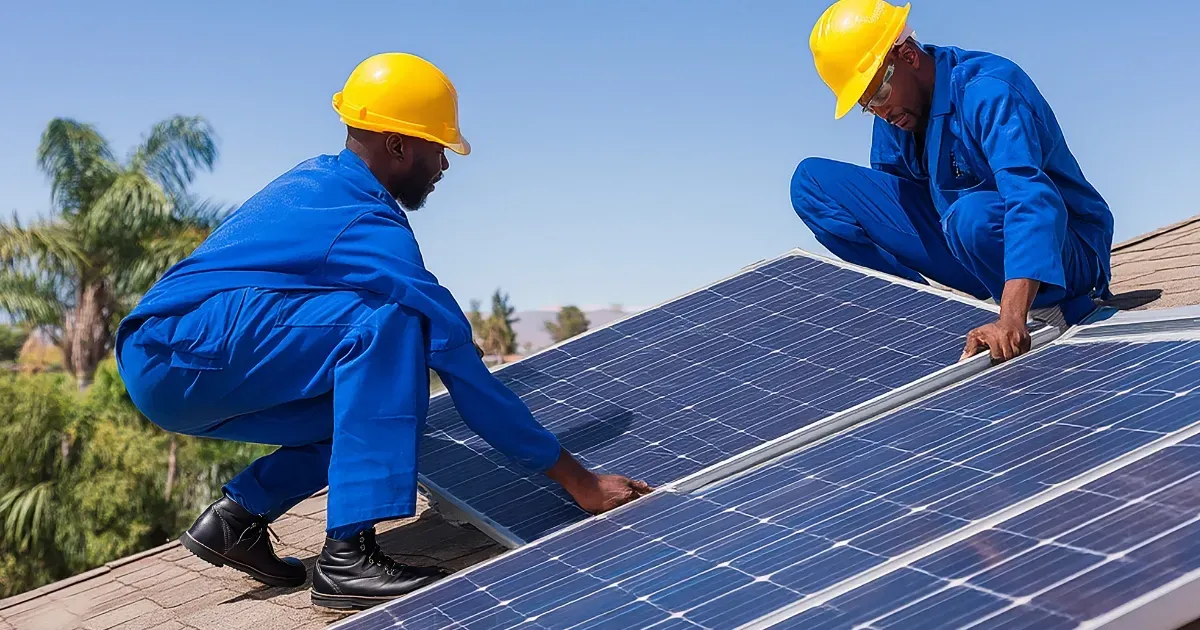
Good maintenance practices protect your solar array and keep your solar energy flowing. By reducing the effects of wear, you safeguard your solar investment and lower the cost of energy. Maintenance also supports cleaner performance, fewer breakdowns, and better long-term savings.
Regular Cleaning
Dust, pollen, and debris lower solar panel efficiency by blocking sunlight from reaching the solar cells. Regular cleaning helps restore power output and extends the usefulness of photovoltaic modules. Some newer systems include self-cleaning coatings to make this task easier. For most residential solar panels, rinsing with water or scheduling routine cleaning prevents buildup that slows energy production.
Fixing Electrical Issues
Electrical issues can limit the efficiency of your solar inverters and disrupt your solar energy system. Faulty wiring increases the chance of system downtime and lowers the reliability of your solar PV system. Addressing problems early keeps your solar panel technology safe and performing well. A proactive approach to solar panel maintenance reduces repair costs and keeps your system connected to the electricity grid.
Inspecting Racking Systems
A stable racking system supports the weight of solar panels against high winds and heavy snow loads. Over time, hardware can loosen, creating risks of misalignment or physical damage. Inspecting racking helps avoid strain that reduces panel life and affects energy production. Catching these issues early improves safety and keeps residential solar programs and commercial solar installation projects running smoothly.
Scheduling Professional Checks
Hiring a professional solar installer for regular inspections improves the life expectancy of your solar energy system. Skilled technicians test PV modules, look for temperature coefficient issues, and detect hidden electrical issues. They also check for potential induced degradation, which can lower solar panel efficiency if untreated. Professional checks give peace of mind and help your solar monitoring portal show accurate solar panel reviews and performance reports.
How Do Warranties Protect My Investment?
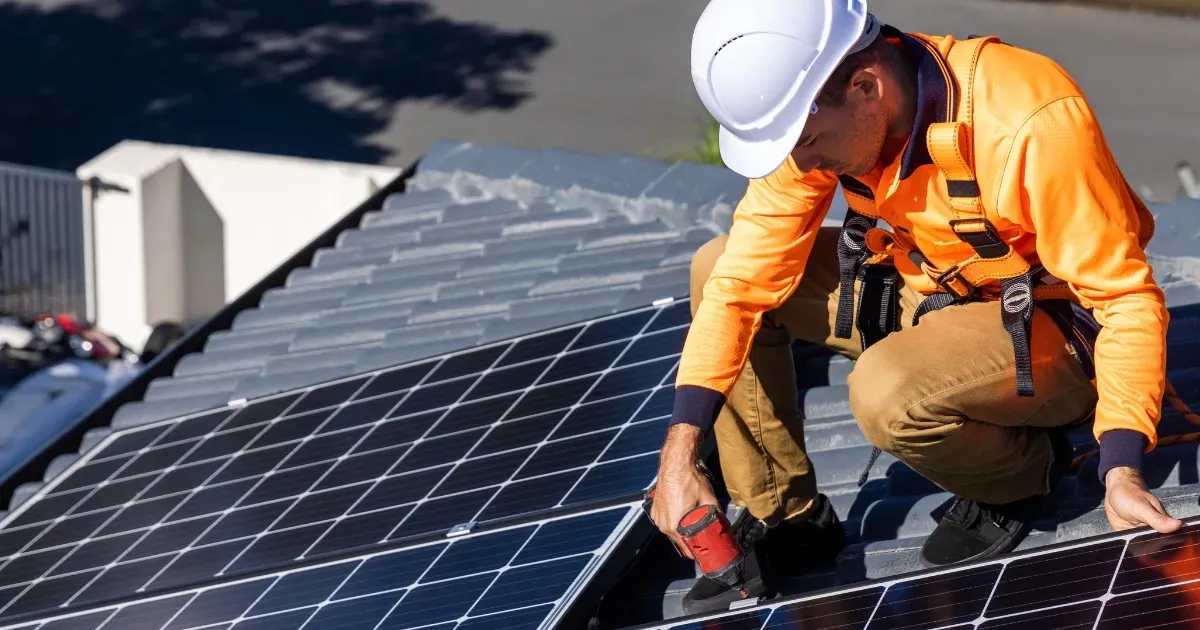
Warranties safeguard your solar investment and give confidence in long-term savings. They cover performance, product durability, and service needs that might arise over your PV lifecycle. With solid warranties, homeowners and businesses know their solar panels will provide lasting energy production and value.
Performance Warranty
A performance warranty guarantees that your solar panel system will maintain a certain power output over its life expectancy. This warranty protects against drops in solar panel efficiency beyond expected degradation rates. It reassures owners that their solar PV system will keep producing electricity for decades. Checking warranty details before solar panel installation helps secure the best coverage.
Product Warranty
A product warranty covers defects in solar panel technology, including cracks in photovoltaic modules or issues with solar cells. Strong warranties protect against manufacturing problems that could affect solar energy costs and shorten panel life. Coverage may include thin film solar panels, cadmium telluride, or copper indium gallium diselenide modules. Choosing panels with longer product coverage supports reliable energy production for both residential solar panels and commercial solar panels.
Service Agreements
Service agreements add extra protection for your solar PV system by covering solar panel maintenance and repair. These agreements often include monitoring of solar inverters and solar batteries to keep energy production steady. They also support repairs caused by temperature fluctuations, UV rays, and natural wear. Having an agreement lowers stress and helps owners focus on savings from solar net metering and reduced utility bills.
How Can I Maximize the Value of My Solar Panels?
Maximizing value comes from combining quality solar panel installation with good solar panel maintenance and smart planning. Using solar monitoring portals or a solar savings calculator helps track your solar energy costs and estimate long-term savings. Properly sized solar PV systems with efficient solar inverters and reliable solar batteries deliver steady results. Investing in durable PV materials and researching solar panel reviews also supports lasting value. Finally, looking into solar warranty programs, long-term loans, and recycling programs helps strengthen the full PV lifecycle of your system.
Frequently Asked Questions
How long do solar panels usually last?
Most solar panels have a life expectancy of 25 to 30 years. Their performance slowly declines due to natural degradation rates in the solar cells. With good solar panel maintenance, many systems continue producing reliable energy well beyond that timeframe.
What shortens the lifespan of solar panels?
Physical damage, high winds, heavy snow loads, and temperature fluctuations can all shorten the panel life of a solar PV system. Poor solar panel installation or unresolved electrical issues also reduce durability. Choosing high-quality PV modules and working with a skilled solar installer helps protect long-term energy production.
Can cleaning really improve solar panel lifespan?
Yes. Regular cleaning keeps solar panels free of dust and debris that block sunlight. This helps maintain solar panel efficiency and consistent power output. In turn, it extends the useful years of your solar energy system.
Do solar warranties cover lifespan issues?
A performance warranty protects against excessive solar panel degradation and loss of energy production. A product warranty covers defects in the photovoltaic modules or solar panel technology. Together, they support the long-term value of your solar investment.
What happens to old solar panels?
End-of-life solar panels can be managed through solar panel recycling programs. Materials such as glass, PV materials, and even metals are recovered through recycling processes. These programs reduce hazardous waste and lower reliance on fossil fuel energy sources.
Wrapping
Understanding solar panel lifespan helps homeowners and businesses plan for long-term energy production. From the effects of degradation rates and physical damage to the importance of solar panel maintenance, every detail matters. Knowing how solar warranties, solar inverters, and solar panel recycling programs work also strengthens the value of your solar investment.
Reliable solar energy systems bring more than reduced utility bills. They lower reliance on fossil fuel, support clean electricity grids, and create savings across the PV lifecycle. With advances in solar panel technology such as self-cleaning coatings, reusable modules, and evolving recycling requirements, the future looks promising.
At
Local Map Construction, you get expert help in every stage of your solar panel installation. Call 970-218-1620 to discuss your project and explore options for residential solar programs or commercial solar installation that protect your solar investment.
